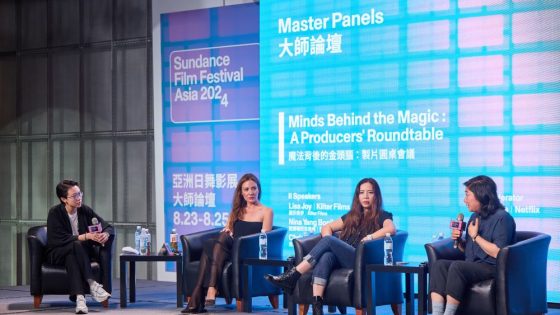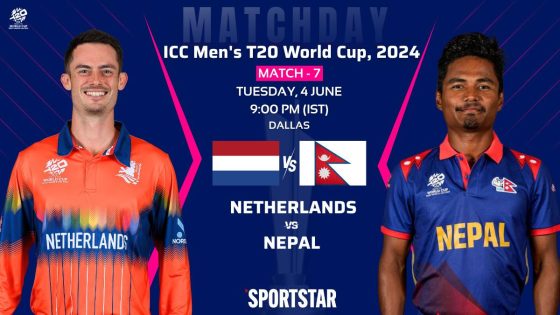How did the organizers of this year’s Sundance Asia mark their return to Taiwan? By growing the festival in every way possible.
For the second year in a row, Sundance Asia returned to Taipei. The expansion of the festival’s programming was a reflection of Taiwan’s efforts to boost filmmaking in the region. The festival run was extended from three to five days. Only three feature films were shown last year. This time around, 15 films including “Didi,” “Sujo,” “Little Death” and “Your Monster” were among the films showcasing the best of U.S. independent storytelling. Last year only two filmmakers attended; this time around, there were eight. The festival also doubled in scale its panels and masterclasses.
Not only is it showcasing films and hosting panels, but the organizers are also helping to raise the country’s profile as a hub for local and international filmmakers.
“It was such a great way for us to grow the festival in Taiwan,” said Kim Yutani, Sundance Film Festival director of programming. “That is the heart of what we do; connecting those filmmakers to audiences.” Yutani continued, “To be able to do it on this level was incredibly gratifying.”
The satellite event sits alongside London and Mexico. Sundance Asia began back in 2014 as Sundance Hong Kong, remaining there until COVID. The festival moved to Jakarta in 2022, and finally to Taipei in 2023.
There was no shortage of Hollywood star power at the festival to share and help educate aspiring storytellers. “Game of Thrones” director Alan Taylor, “Fallout” showrunner Lisa Joy, producer Nina Yang Bongiovi and “Joker 2” cinematographer Lawrence Sher were among some of those on hand leading panels about how talent and the casting process play significant roles in achieving the greenlight on a production, or lessons learned on set. “Didi’s” Sean Wang was joined by Caroline Lindy (“Your Monster”) sharing their experiences casting and working with performers. In addition, the Sundance organizers held its inaugural Intensive Screenwriters workshop for the Asian satellite.
With its success in the American market, Utani noticed how local filmmakers wanted to use the program as a means of spotting up-and-coming filmmakers: “For us to have our curatorial eye on these films, to figure out which ones are bubbling up, and to be able to have local judges and jury members and hear their impressions, and what they responded to was interesting. We were pretty spot on with each other.”
Taiwanese filmmakers had an exclusive opportunity to submit their short films for competition. The jury prize for best short film, presented by Gold House, was eventually awarded to “Suo Jiang” by production designer-turned-director Lin Chien-yu.
Utani who joined Sundance in 2006 as short-films programmer said the form was near and dear to her heart. “It’s such an exciting form because there are no rules. You can do whatever you want.” She highlighted the fact that the form had always “been a place of discovery.” Utani said, “ To be able to spot a filmmaker with a vision from their short film is such a gift to programmers and curators.”
The programming provided local filmmakers to hear and see the connective tissue of the festival’s work on the ground. Wang was someone who had started in the labs. Utani explained, “Knowing that a filmmaker went through our artist programs and our labs, and has a feature-length film that has been really successful, and to be able to premiere that was the best possible scenario.” She went on to say, “To have a filmmaker of Taiwanese background come in with such a perfect film to open our festival was great. But to be to have somebody speak about what our labs do, and how they can be a resource to filmmakers was great.”
Mary Sadeghy, Sundance Institute Head of Partnerships and Events equates the success and growth of the festival to the many partnerships, beginning with festival partners in Asia, Jonathan Chao and Kevin Lin. She calls them the “heartbeat,” of the festival. Support from TAICCA, a ministry of culture-funded intermediary between the public and private sectors, producing and promoting content in film, TV, music, comic books and games, has helped with the organization’s mission.
Said Sadeghy, “We are really happy that we’re able to bring something into the artist community and to audiences, and to be able to have that symbiotic relationship.” she continued, “Mission is everything, and when you can find a partnership that really helps to keep your mission enduring and drive your mission forward. That is a special and unique opportunity.”
Last year, Taiwan productions increased from 10% to 16%, with more funding going into filmmakers, with efforts coming from the government to boost Taiwan’s filmmaking image. Lin said, “You’ve got big organizations that are pushing for a more robust funding system so that anyone from amateur or student level filmmakers can start to see and understand, ‘Okay, how am I going to get access to funds to create increasingly higher quality, independent films?’”
As Taiwan seeks to imprint itself firmly in the Asian film market, a festival like Sundance can help storytellers create and advance their work.
By bringing in the best, and by having meaningful conversations and providing resources, Utani said, “The best thing we can do when we go to a place is to make ourselves available to the people on the ground, the emerging storytellers, and for them to understand that Sundance is a place for them.”
Source Agencies


